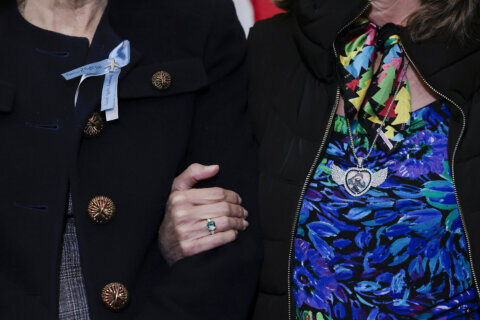WASHINGTON — The WMATA Board of Directors has approved a test program for cheaper monthly passes.
The passes would charge riders for about 18 days per month of round-trips, which would provide a discount worth roughly the same value as two to three days of commutes each month for a rider who uses Metro every single weekday.
A trial program is expected to begin next year.
Under a program, riders can pick a monthly pass that covers only up to the cost of the trips that they regularly take, instead of the existing one-size-fits-all monthly pass options.
For example, a commuter from Shady Grove or Vienna to Union Station or Capitol South, who pays $5.90 each way under peak fares, could pick a pass similar to existing ones that cover that maximum fare, but commuters from Cheverly to Capitol South ($3 at rush hour) or Branch Ave. to Navy Yard ($3.35 at rush hour) would also have monthly pass options that might work for them.
Today, Metro says rail passes are not that popular, in large part because of the price.
At a meeting last month, Arlington County Board Member Mary Hynes supported the idea as a way to provide new options for riders, especially those who live relatively close to a Metro station.
Michael Goldman, a Metro board member from Maryland, said at the meeting that he wanted to see the commuters with the longest rides on Metro pay a lower fare than they do today, potentially $5 as opposed to $5.90.
“I believe that will generate [the] sufficient return of people … to make a proposal that’s basically revenue-neutral,” he argued.
“We have to do something to get these people back on the rails and get them to stop driving all the way in on 66 and all the way in on 270.”
The test period would run three to six months, with a decision by fall on whether to continue the program.
“We have to find a way, if we’re trying to incent people back, to incent everybody, and the $5 long-haul does nothing for the people who live closer in,” Hynes said. “And it may in fact push people to bus where we provide a considerably higher subsidy.”
Today, an unlimited weekly bus pass costs $17.50, which is the same price as 10 trips.
Unlimited seven-day and 28-day rail passes are priced against the most expensive rush-hour fares, so they only tend to pay off for commuters who ride Metro the farthest every day during rush hour and also take at least one or two other trips during the period the pass is active.
Metro’s seven-day unlimited rail pass is $59.25. The 28-day unlimited rail pass is $237.
Metro also has a seven-day “short trip” rail pass available for $36 that covers all trips worth up to $3.60 (which includes all trips outside of peak periods).
The pass works in a similar way to the proposed new monthly passes, by taking any cost of a rush hour trip beyond the $3.60 from the stored value on the SmarTrip card.
Metro Chief Financial Officer Dennis Anosike said the new fare ideas could also encourage more people to transfer between bus and rail.






